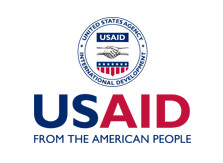|

Young Fulani mother accepts to immunize her child against polio after listening to the audio message in fulfulde language.
|
Success Story
Audio Messages in Local Languages Boost Polio Vaccine Acceptance
Young Fulani girls wrapped in long colourful veils danced while their male counterparts watched and shared in conversation. It was a wedding ceremony in a remote settlement in Dutse Local Government Area in Jigawa State. The fifty young men that witnessed the ceremony were from neighboring communities. As they continued feasting and celebrating, music in the native Fulfulde language started to play. Only this time, it was not the live voices and claps that produced the sound but a vehicle nearby.
Fascinated and propelled by refined music that sounded like theirs, visitors moved closer to the vehicle. The music was preceded by a commentary that addressed concerns about polio and the need for adequate immunization against the virus. It was exciting to hear someone on the other end explain the problem in an understandable way and in their local language. After a few minutes, a voice in the group, Rawua, called out. According to Rawua, who lived in nearby Larabawa, most of the children in his community had never received a polio vaccination.
Following Rawua’s alert, the COMPASS immunization team visited Larabawa and immunized 50 children, 49 of whom had never been immunized.
Despite rapid progress recorded in polio eradication in Nigeria, some areas, especially in the northern region, are still rated as non-compliant (parents refusing to have their child vaccinated) and high-risk. Though great energy and resources go into developing polio-related messages, including posters, radio and television messages, and handbills, they are only able to reach a part of the intended audience. This is attributable to lack of access to sophisticated air-waves, low literacy rates, and difficulty reaching remote communities.
Seeing this as a potential challenge to the country’s polio eradication initiative, the USAID-funded Community Participation for Action in the Social Sector (COMPASS) Project undertook the task of interpreting a list of Frequently Asked Questions (FAQ) about polio into Hausa (the general language in the north) and Fulfulde, the language spoken by Fulanis and broadcasting the FAQs from vehicle-mounted sound systems.
|
“Despite rapid progress recorded in polio eradication in Nigeria, some areas, especially in the northern region, are still rated as non-compliant (parents refusing to have their child vaccinated) and high-risk. " |
Nomadic Fulanis in particular, who are difficult to reach and are not frequent users of health care services, present a great challenge to immunization campaigns. If a child is missed, she could quickly spread the virus. “One carrier could cause a huge set back,” according to COMPASS Regional Director Dr. Lola Mabogunje.
In Gidan Madi, a high-risk community in Tangaza Local Government Area in northwestern Sokoto State, the team visited six women who were pounding millet as part of their house chores. On hearing the Hausa translation of the polio FAQ, they agreed to immunize their 10 children.
The case was slightly different in Zango Local Government Area of Katsina State. Here, a woman confessed her ignorance after listening to the audio message. “I always assumed the thumb print contained the vaccine,” she said. “I did not understand that an oral dispense was required.” Eight children in her household were properly immunized as were 66 others in the community.
From Sokoto to Bauchi, in all eight COMPASS-supported states, the audio commentary helped to break new ground. By sharing interactive messages through social networks and gatherings, the Project is reaching more parents with the necessary information about immunization to make healthy choices for their children.
|
